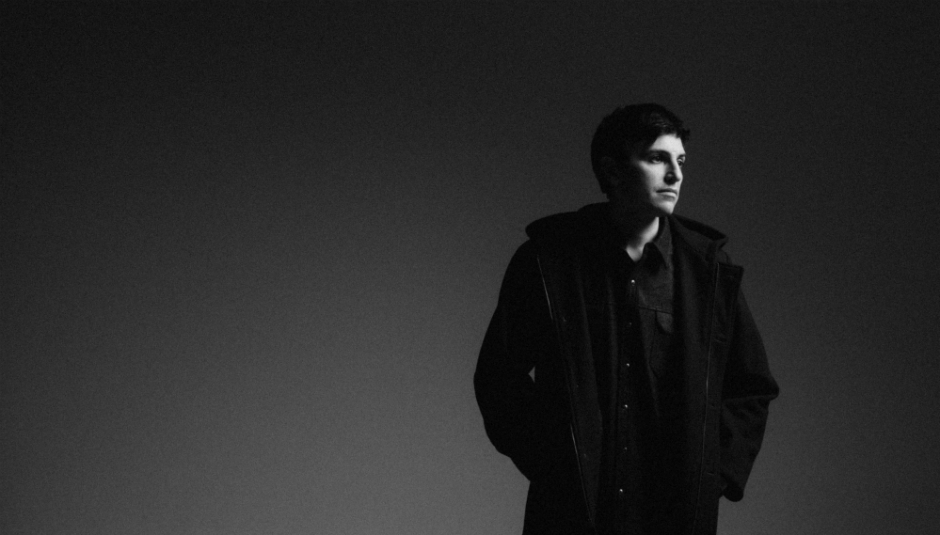“You know, growing up, I wanted to call myself Kip Manchester. That’s how much I loved the idea of this place.”
Kip Berman is sitting out front at the city’s Night and Day Café, one of its most storied venues, ahead of one of the first shows his band, The Pains Of Being Pure At Heart, have played for a long while. His affinity with Manchester is something that stretches beyond his teenage obsession with The Smiths and The Stone Roses; he’s made his own memories here, and talks giddily about the first trip Pains made to town - their appearance at Chorlton Irish Club in 2009 was “maybe our best ever show.”
In a lot of ways, he couldn’t have picked a better time to return to Manchester; its rainy reputation feels a long way away on a balmy early summer’s evening in May, and the usual local penchant for conviviality feels as if it’s been turned up to eleven. It’s just three days on from the bombing at the arena, and Mancunians are already responding with palpable empathy, chattier and friendlier than ever. A film crew from a French news station roam Oldham Street, looking for vox pops about the city’s resilient spirit. Typically, they are not left wanting for obliging volunteers.
And yet, for Berman, the visit is bittersweet. He’s a long way from home, and in more ways than one. It isn’t just that he’s flown across the Atlantic; these days, there’s nothing immediately familiar about winding streets like these, dotted as they are with bars frequented by creative types. Last year, he and his wife, Cecily, welcomed their first child, a daughter named Viola. Ever since, Berman has played the doting househusband, swapping the bustle of Brooklyn for relative tranquility in New Jersey – Cecily works there, at the prestigious Princeton University. Save for a single day at a friend’s wedding, this ten-date tour is the first time Berman’s spent more than twenty-four hours away from his daughter since she was born, over a year ago.
“This is only day two, and it’s already really hard not being with her,” he says as he swipes, beaming, through photos of Viola on his phone. “I love that I’m able to go on tour and play these songs, and I still really love music, but things have changed since she was born. The band isn’t the most important thing in my life anymore. I’m a sweatshirt and baseball cap guy now, living out in New Jersey surrounded by trees and hanging out with a baby all day. That’s honestly how nearly all of my days up until this week have been spent. Now, coming out here, I feel like I’m doing it first and foremost because I want my daughter to be proud of me, once she gets to the age where she’s old enough to ask, “Hey, why does dad just sit at home all day?”
Ironically, he was a long way from this particular frame of mind when he was writing and recording Pains’ fourth full-length, The Echo Of Pleasure. It was finished in January 2016, before Viola was born, and lyrically it balances light and dark more deftly than Berman ever has before. There are unabashed love songs that reflect the happiness of his marriage - ‘My Only’, ‘When I Dance With You’ – and elsewhere, ruminations on the nerves that impending fatherhood inspired.
“It’s been hard to get back into the headspace that I was in whilst I was writing the album,” Berman admits, “because this last year with my daughter has been incredible in ways I didn’t anticipate. I was worried about the outcome of things that have gone on to be so positive. I didn’t give any thought to the practicalities of the band, like whether or not we’d even have a chance to go on tour once the baby was born, and I think that’s meant that this is some of the biggest and most expressive stuff I’ve ever written. That cuts both ways, too; the love songs on the record don’t feel superficially positive, they feel genuinely positive, genuinely representative of the fullness of love, because my family was what I was concentrating on.”
There were songs like that on the last Pains LP, 2014’s Day Of Abandon, too; Berman and Cecily, classmates at college, had reconnected in 2011, so to assume the likes of ‘Beautiful You’ and ‘Until The Sun Explodes’ were also penned for her doesn’t seem like an enormous leap of logic. Still, there’s another throughline that connects that record with this new one – anxiety over the very future of the band, even if the perceived threats to it were different each time. “I took the title for that album from the novel Days Of Abandonment, and that kind of tells you a little bit about how I felt about people leaving the group,” he says, with a grin that suggests he might not be entirely serious. “I mean, Peggy [Wang] had gone, and Alex [Naidus] and Kurt [Feldman] were about to – they didn’t want to tour anymore. So some of those songs were a little bit “woe is me”. I was struggling to understand how exactly things were going to continue.”
As much as the band has always been a vehicle for Berman’s songs – he is the sole writer of their material – he never wanted to be a solo artist, or even to be the focal point of The Pains; to him, it needed to feel like a group effort, and constructing an actual outfit around him was a crucial part of that. To underline his point, he reels off the names of contemporaries of his that have done similar in recent years - Wild Nothing, Toro y Moi, Beach Fossils. The difference with those bands, he suggests, is that it was clear from the start that they were one-man efforts; Berman might have done too good a job of disguising himself as The Pains.
“It’s almost like it’s harder to reverse that process, to go from presenting as a band to kind of taking ownership of it myself,” he agrees. “I just never had a natural predisposition for it being all about me. As a kid, there seemed to be some sort of ideal in a band – that it can represent something that’s permanent and good in a way that individuals can’t really live up to, because so often, human beings ultimately disappoint. When people started to leave, I didn’t do well becoming the centre of attention. I didn’t want to be in press photos by myself because I still think there’s something that’s brought to the music when it’s a genuine group – and not just in the sense of me hiring some guys with goatees who could learn the parts overnight.”
Just as so much of The Echo Of Pleasure’s songs revolved around Berman’s own fledgling family at home in New Jersey, he needed the recording of them to feel like a familial affair to justify releasing them under The Pains’ moniker. “Jacob [Sloan], who’s playing bass with us now, is a dear friend, and Christoph [Hochheim]’s been with us basically since the first year. His brother, Anton, he drummed on the record, and then we had a lot of friends of the band come in and help out, people we love like Jess Weiss from Fear Of Men or Jen Goma, who plays in A Sunny Day In Glasgow. So there were differences in geography and time zones involved, but that was how I wanted it. I read this interview once with Robert Smith, where he was talking about how if he wasn’t the singer in The Cure, then he’d be the president of The Cure’s fan club – not because they were the best band in the world, necessarily, but because he loved them so much, and cared so much about what they stood for. That’s kind of how I feel about The Pains.”
Thematically, though, The Echo Of Pleasure is clearly a look inside Berman’s head and nobody else’s. Aside from the dizzy, infatuated highs and troubled lows, there are points at which he marries the two; on ‘Anymore’, there’s the repeated line “I wanted to die with you”, which he points out can work as a sweet statement of life-long devotion or as a Morrissey-esque piece of tongue-in-cheek romantic fatalism. Another line from the same track - “I couldn’t take it anymore” - could be taken at its desperate face value, or it might be euphoric, suggesting the casting off of a weight in a relationship defined by extremes.
Plus, the record often soars in the way that The Pains’ 2011 sophomore LP, Belong, did, casting off some of Days Of Abandon’s self-doubt, even if they don’t channel the Smashing Pumpkins in the skyward guitars again. That was a decision inspired, Berman says, by watching bands in a tiny bar in Japan right after he’d just played a huge festival slot; “they were just playing great songs on borrowed instruments with one amp, not worried about whether they’d soundchecked or if all the levels were exactly right.” There was catharsis, too, in returning to big, bold three-chord structures, the sort that lend themselves to sweeping choruses. Most crucial of all was Berman’s acceptance of the fact that as the years go by and his circumstances change, his writing evolves along with them.
“I can still play the old songs and feel that visceral, immediate connection with the crowd, but if I tried to conjure up another ‘Come Saturday’ now, it’d be false. It’d just be dishonest, and there are other things I can write about now that I’m a little bit older. I don’t just mean, ‘Oh man, I feel sad about my car insurance payments.’ I joke about that, but remember that Pulp track, ‘I’m not Jesus although I just have the same initials / I am the man who stays home and do the dishes’? I think about that song all the time when I’m doing the dishes! It’s cool that he was totally comfortable about expressing this other identity, that wasn’t just about trying to steal somebody else’s girlfriend all the time. Leonard Cohen was the same, the way he embraced writing from an older perspective. After a while, you can’t keep going back to youth culture – it’s creepy. A thirty-year-old singing about teenagers, it’s sad. I’m glad I’m trying to do something different now.”
That crossover, between real life and musical expression, is sure to be vital to the future of The Pains; Berman is still in the early stages of working out how family and the band can co-exist totally harmoniously. He’s already got an anecdote, from the previous night’s opening show of the tour, about being bombarded post-gig with information about upcoming promo and zoning out, something that previously would’ve been unthinkable. He just wanted to get back to the hotel to Skype home, where for the past year, Viola has been his audience-of-one; he’s been playing her the likes of David Bowie’s ‘Kooks’ and Elton John’s ‘Daniel’ on the acoustic guitar. “I really understand how somebody reading this might think I don’t know how lucky I am to have these opportunities,” he says, “because I was in bands for ten years before I ever played in a different zip code, you know? Bur right now, it’s very hard to intellectualise how me being away so much might jeopardise some aspect of my relationship with my daughter. I’ve been wondering if that Jonathan Richman song was actually true, about Picasso never being called an asshole. His daughter thought he was, and what good was it, him being Picasso, if that’s how she felt about him?”
Still, it’s not that he’s lacking in experience when it comes to juggling The Pains and his family – it’s not just that he hasn’t had to bridge the gap between these particular generations before. “My grandma somehow discovered Google Alerts really early on in The Pains’ life,” he laughs, “and that’s kind of always been on my mind. I just want to play rock and roll and make good music, but you have to be able to explain that to people outside of the bubble, too. You’re walking a bit of a tightrope because you need to pursue your career in a way that doesn’t mean your grandma’s going to be emailing you thirty times a day, because she’s getting Google Alerts about your behaviour on tour or something. She’s only just gotten over us having a song called ‘This Love Is Fucking Right!’ ‘Why did you have to use that word?’ It’s hard to go, ‘No, grandma, it was a joke, about how The Field Mice would never have said that...no, not actual field mice, they’re a band...’”
In a weird way, Berman has come full circle; the worries about how his life would change when the band took a backseat to his daughter have now, a year on, been replaced by concerns about leaving his daughter for weeks at a time to be in the band. The consolation he’s taking, in the face of the uncertainty, is that his fears first time around proved to be unfounded; he wishes, he says, that he could’ve known in advance of his daughter’s arrival how profoundly positive a turn it would prove for him.
“So much of that seems really silly now. Why was I getting worked up about leaving Brooklyn – ‘Oh no, I’m not going to be cool anymore, because I won’t be going to the same three bars and drinking beer with the same three friends!’ If I could’ve realised then that this past year of not touring or playing electric guitar was going to be the happiest year of my life, I wouldn’t have been so frightened. Things turned out happily then, and hopefully, they will again, now that I’m back on the road. I mean, I wouldn’t want to have to update my résumé. I haven’t done that in a long time. What am I going to write? ‘Talents include standing on fuzz pedals, mumbling lyrics about feelings, and sweating profusely. Also have good knowledge of Glaswegian and Mancunian bands of the eighties and nineties.’ That’s probably not gonna get me very far”
The Echo Of Pleasure is out now via Painbow Records. For more information about the band, please visit their official website.
Photo Credit: Ebru Yildiz






















